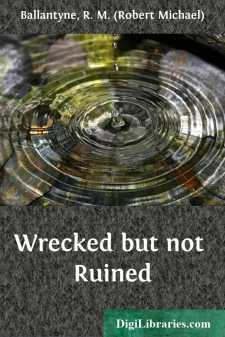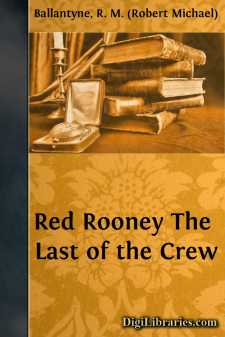Categories
- Antiques & Collectibles 13
- Architecture 36
- Art 48
- Bibles 22
- Biography & Autobiography 813
- Body, Mind & Spirit 142
- Business & Economics 28
- Children's Books 17
- Children's Fiction 14
- Computers 4
- Cooking 94
- Crafts & Hobbies 4
- Drama 346
- Education 46
- Family & Relationships 57
- Fiction 11829
- Games 19
- Gardening 17
- Health & Fitness 34
- History 1377
- House & Home 1
- Humor 147
- Juvenile Fiction 1873
- Juvenile Nonfiction 202
- Language Arts & Disciplines 88
- Law 16
- Literary Collections 686
- Literary Criticism 179
- Mathematics 13
- Medical 41
- Music 40
- Nature 179
- Non-Classifiable 1768
- Performing Arts 7
- Periodicals 1453
- Philosophy 64
- Photography 2
- Poetry 896
- Political Science 203
- Psychology 42
- Reference 154
- Religion 513
- Science 126
- Self-Help 84
- Social Science 81
- Sports & Recreation 34
- Study Aids 3
- Technology & Engineering 59
- Transportation 23
- Travel 463
- True Crime 29
Wrecked but not Ruined
Categories:
Description:
Excerpt
The Outpost.
On the northern shores of the Gulf of Saint Lawrence there stood, not very long ago, a group of wooden houses, which were simple in construction and lowly in aspect. The region around them was a vast uncultivated, uninhabited solitude. The road that led to them was a rude one. It wound round a rugged cliff, under the shelter of which the houses nestled as if for protection from the cold winds and the snowdrifts that took special delight in revelling there.
This group of buildings was, at the time we write of, an outpost of the fur-traders, those hardy pioneers of civilisation, to whom, chiefly, we are indebted for opening up the way into the northern wilderness of America. The outpost was named the Cliff after the bold precipice near the base of which it stood. A slender stockade surrounded it, a flag-staff rose in the centre of it, and a rusty old ship’s carronade reared defiantly at its front gate. In virtue of these warlike appendages the place was sometimes styled “the Fort.”
When first established, the Cliff Fort lay far beyond the outmost bounds of civilised life, but the progress of emigration had sent forward wave after wave into the northern wilderness, and the tide rose at last until its distant murmur began to jar on the ears of the traders in their lonely dwelling; warning them that competition was at hand, and that, if they desired to carry on the trade in peace, they must push still further into the bush, or be hopelessly swallowed up in the advancing tide.
When the unwelcome sounds of advancing civilisation first broke the stillness of this desolate region, the chief of the trading-post was seated at breakfast with his clerk. He was a tall, good-looking, young Englishman, named Reginald Redding. The clerk, Bob Smart, was a sturdy youth, who first saw the light among the mountains of Scotland. Doubtless he had been named Robert when baptised, but his intimates would not have understood you had you mentioned him by that name.
Bob had just helped Reginald to the wing of a salt goose, and was about to treat himself to a leg of the same when the cook entered.
This cook was a man. It may also be said with truth that he was more than most men. At the outpost men were few, and of women there were none. It may be imagined, then, that the cook’s occupations and duties were numerous. François Le Rue, besides being cook to the establishment, was waiter, chambermaid, firewood-chopper, butcher, baker, drawer-of-water, trader, fur-packer, and interpreter. These offices he held professionally. When “off duty,” and luxuriating in tobacco and relaxation, he occupied himself as an amateur shoemaker, tailor, musician, and stick-whittler, to the no small advantage of himself and his fellow-outcasts, of whom there were five or six, besides the principals already mentioned.
Le Rue’s face bore an expression of dissatisfaction and perplexity as he entered the hall.
“Oh, Monsieur Redding,” he exclaimed, “dem squatters, de black scoundrils what is be called Macklodds has bin come at last.”
“Ho, ho!...












